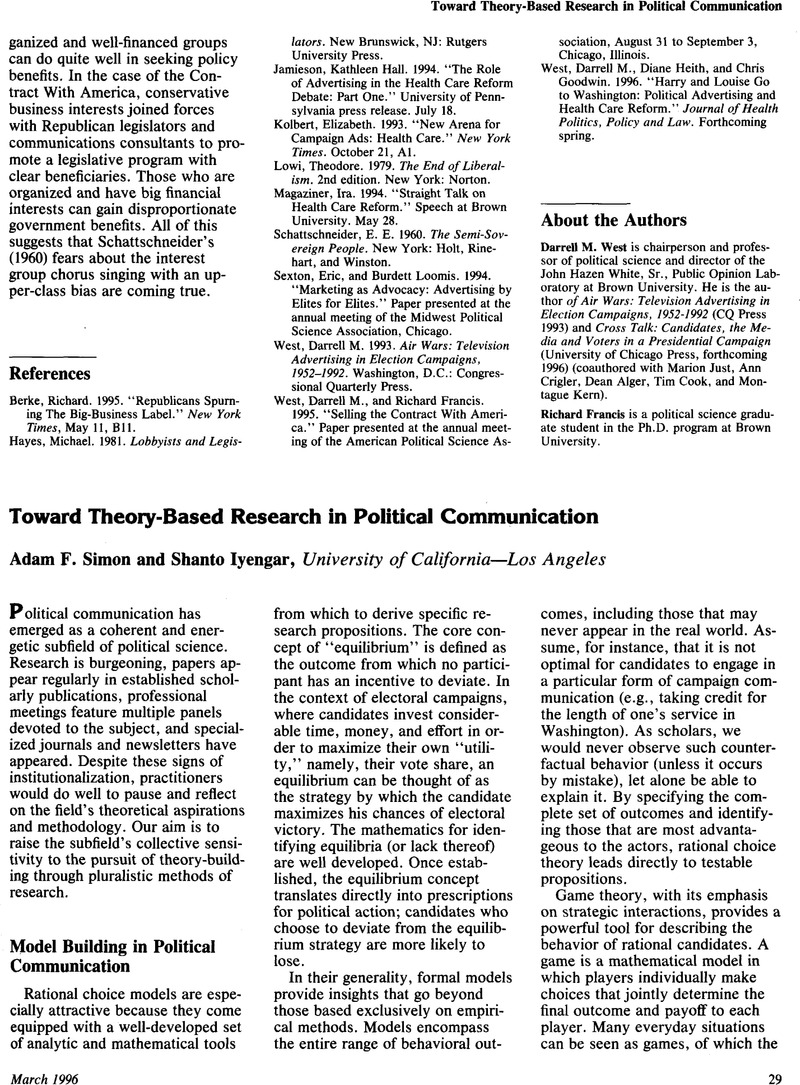Crossref Citations
This article has been cited by the following publications. This list is generated based on data provided by Crossref.
Iyengar, Shanto
and
Simon, Adam F.
2000.
New Perspectives and Evidence on Political Communication and Campaign Effects.
Annual Review of Psychology,
Vol. 51,
Issue. 1,
p.
149.
Holbert, R. Lance
2005.
Back to Basics: Revisiting, Resolving, and Expanding Some of the Fundamental Issues of Political Communication Research.
Political Communication,
Vol. 22,
Issue. 4,
p.
511.
Holbert, R. Lance
Tschida, David A.
Dixon, Maria
Cherry, Kristin
Steuber, Keli
and
Airne, David
2005.
The West Wingand Depictions of the American Presidency: Expanding the Domains of Framing in Political Communication.
Communication Quarterly,
Vol. 53,
Issue. 4,
p.
505.



